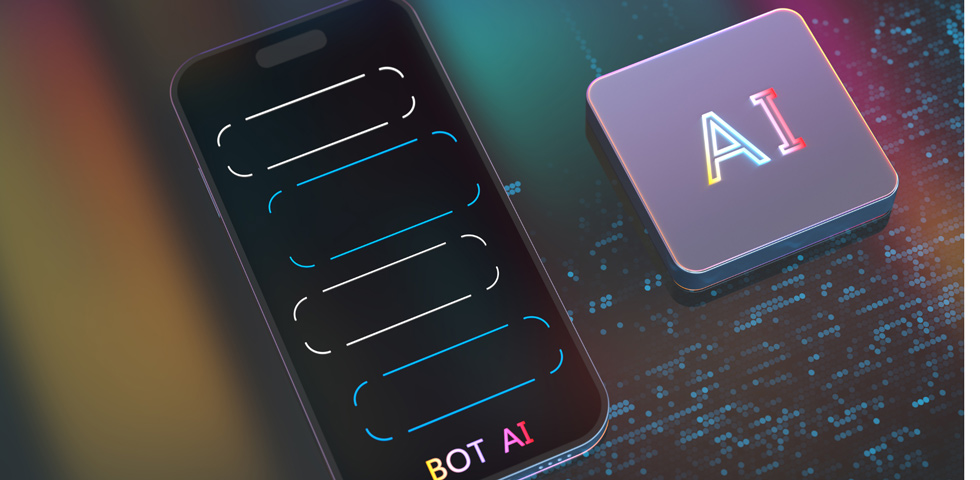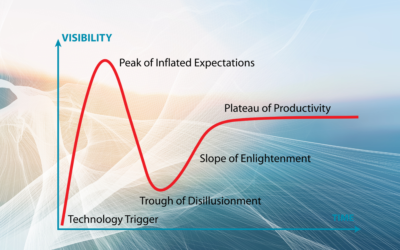This blog will take a dive into the capabilities of Microsoft AI, as well as touching on how Azure Open AI is taking advantage of the recent developments in machine-learning technology.
Microsoft and OpenAI have been partners for a long time, from Microsoft’s initial investment of the company behind ChatGPT to integrating GPT services into the new Azure AI platform.
There are two big changes worth mentioning, including new offerings from Open AI and upgraded virtual machine hardware, which highlight Microsoft’s focus on utilising generative AI in a variety of ways.
- New models in Azure OpenAI
GPT-4 is the newest and most advanced version of Open AI’s language model systems. Azure OpenAI Service is gaining popularity with 11,000 customers who already use it for tasks such as customer service, creating content and analysing documents. Existing Azure OpenAI customers are encouraged to join a waitlist for access to GPT-4.
Unlike ChatGPT (we go into more detail about that below) which accepts only text, GPT-4 goes above that – accepting prompts including both images and text, returning textual responses.
2. New virtual machine series
Microsoft Azure users can now utilise the latest NVIDIA computing technology to design and run their generative AI applications.
The Microsoft Azure ND H100 v5 VMs using NVIDIA H100 Tensor Core GPUs and NVIDIA Quantam-2 InfiniBand networking enables advanced generative AI, high performance computing (HPC) as well as other applications with a simple click of a button.
Initially available to US customers, the new launch arrives as developers and researchers are currently using large language models (LLMs) and computing techniques to discover new consumer and business use cases.
Now we’ve covered two big recent changes to OpenAI, let’s go back to the beginning and discuss a topic that’s taking the world by storm, Chat GPT – a tool with a lot to offer for businesses and individuals, offering detailed research with just one click. If you’ve never heard of Open AI or Chat GPT, and the above totally confused you, keep scrolling and hopefully we can help clear it up for you…
So, Chat GPT. An exciting development in the AI space and the Azure Open AI Service, the natural language processing technology can learn from large amounts of text data and generate human-like responses to queries.
Chatbots have become more popular in recent years, as they enable 24/7 customer support, reduce wait times and lead to greater customer satisfaction.
Azure Open AI service allows chatbots to be deployed quicker and easier than ever before. If you train a GPT model on large amounts of text data, you can build a chatbot that can understand and respond to natural language queries, have simple conversations and potentially handle more complex support inquiries.
Language translation is another valuable use case for GPT-based models. By training a model on text data in multiple languages, the translation service can generate translations in real-time or batch processes. Azure’s Open AI service can enable customisation of the translation model for specific industries or domains. This allows businesses to have better communication with customers or partners in different regions and reach new markets.
Chat GPT is becoming overwhelmingly popular for its content generation. Product descriptions, news articles and blog writing can be supported by Chat GPT as a research tool. Azure’s Open AI servie allows you to create high standard, relevant content for your website or blog, offering a lot of benefits – from a boost in SEO rankings to an increase in audience engagement.
Doing More with Less with Azure AI
Microsoft is on its way to make Azure cloud the place for enterprises to run their AI and machine learning workloads. A comprehensive suite of artificial intelligence (AI) tools and services, AI has the power to enable businesses to utilise advances in AI technology to solve complex problems, make data-driven decisions, and build intelligent applications.
The portfolio of AI services is designed for developers and data scientists to do more with less [link to blog]. Following decades of extensive research, responsible AI practices and flexibility offered by Azure AI to build and deploy your own AI solutions, businesses are able to access advanced high-quality vision, speech, language and decision-making AI models through simple API tools and machine learning models with an AI supercomputing infrastructure.
Here, we round-up some of AI’s key capabilities useful for business growth:
Azure cognitive services offer pre-built AI models and APIs that help developers add AI capabilities and cognitive intelligence to applications, including vision, speech, language, search and decision-making APIs which allow businesses to utilise features such as image recognition, speech-to-text conversion, language understanding and more into their applications without the need to have a high knowledge of AI.
Providing an integrated development environment for bot building, Azure Bot Services integrates seamlessly with Power Virtual Agents, a fully hosted low-code platform which allows developers of all levels to build conversational AI bots without writing code.
Azure Machine Learning is a service that enables businesses to build, train and deploy machine learning models at scale. It enables businesses to save valuable time with industry-leading machine learning operations, open-source interoperability and integrated tools.
Formerly known as Azure Search, Azure Cognitive Search is a cloud search service that provides developers with infrastructure, APIs and other tools for building a rich search experience over content in web, mobile and enterprise applications.
Search is an essential tool to any app that surfaces text to users, including scenarios such as catalogue or document search, online retail apps, or data exploration.
Some of the capabilities of creating a search service include a search engine for full text search, rich indexing and Azure integration at the data layer, machine learning layer, and AI (Cognitive Services). It can handle a wide variety of data types and supports integration with other Azure services like Azure Blob Storage and Azure SQL Database.
Azure Databricks is a collaborative analytics platform bringing together Apache Spark with Microsoft Azure. It creates an optimised environment for big data processing, advanced analytics, which allows businesses to perform tasks like data preparation, exploratory data analysis and machine learning model training at scale.
As well as this, Azure Databricks integrates with other Azure services and provides a collective workspace for data scientists, data engineers and business analysts.
With the Azure Cognitive Integration service, Azure AI services seamlessly integrate with other Azure offerings, including Azure Internet of Things, Azure Data Lake, Azure Synapse Analytics, and Azure DevOps. This allows businesses to unlock the capabilities of AI across their entire cloud infrastructure, revealing new insights and enabling better decision-making processes.



